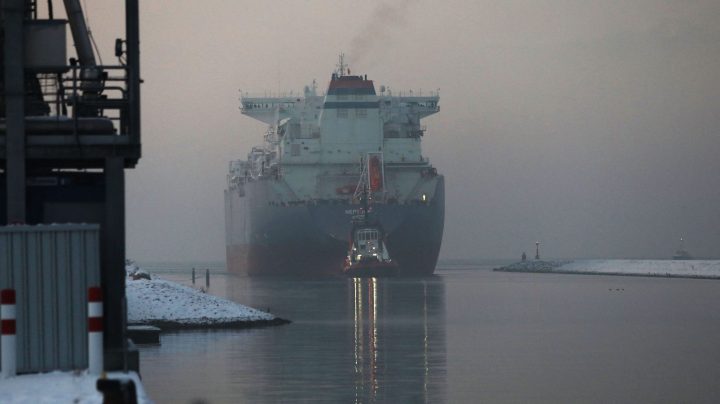
Europe steeled itself for high natural gas prices, but now they are falling
Europe steeled itself for high natural gas prices, but now they are falling

The Henry Hub spot price, which is a benchmark price for U.S. natural gas, is $7.20 per metric million British thermal unit. What’s a metric million British thermal unit? Never mind that.
The thing to remember is that this benchmark price was less than $2 before the pandemic. Europe, which is facing an energy crisis, has been particularly anxious about the rise in prices. But somehow, prices there have been falling.
They were down 10% Friday amid news that storage is keeping up with demand.
We’ve said this before but it bears repeating: Natural gas, as a commodity, is very different than oil.
“All of the gas supply and demand is largely connected by pipeline infrastructure,” said Eugene Kim at Wood Mackenzie. “And whenever you get a mismatch of supply and demand in a certain region, then you start to see prices dislocate severely.”
Which means, where there isn’t much pipeline infrastructure in New England, on the West Coast of the United States and certainly in part of Europe, the price for natural gas there is much higher.
So why is the price of gas in Europe going down? It’s not like it all of a sudden built more pipelines.
“It’s mostly, believe it or not, being really lucky with the weather in November,” said Ryan Kellogg, a public policy professor at the University of Chicago. “The natural gas balance depends so much on what winter weather turns out to be. And it turns out Europe, fortunately for them, got really lucky and had a really warm November.”
So, he said, even though Europe has recently had a few cold snaps, storage has remained pretty full, so many countries have been able to keep up with increased demand.
On top of that, Germany’s first floating storage and regasification unit that will allow that country to import liquefied natural gas is, set to come online Saturday. That move was spurred by Russia’s invasion of Ukraine and the cutting off of that supply.
But Ana Maria Jaller-Makarewicz, European analyst at the Institute for Energy Economics and Financial Analysis, said leaders across the Atlantic have to think more long term.
“Yeah, we need the gas right now to offer us that security for this winter,” she said. “But we need to focus on the future, yeah? And the future, we need to diversify our sources of energy.”
And, she said, Europeans need to reduce demand for fossil fuels, which they’ve shown is possible as necessitated due to that lack of Russian supply.
There’s a lot happening in the world. Through it all, Marketplace is here for you.
You rely on Marketplace to break down the world’s events and tell you how it affects you in a fact-based, approachable way. We rely on your financial support to keep making that possible.
Your donation today powers the independent journalism that you rely on. For just $5/month, you can help sustain Marketplace so we can keep reporting on the things that matter to you.











